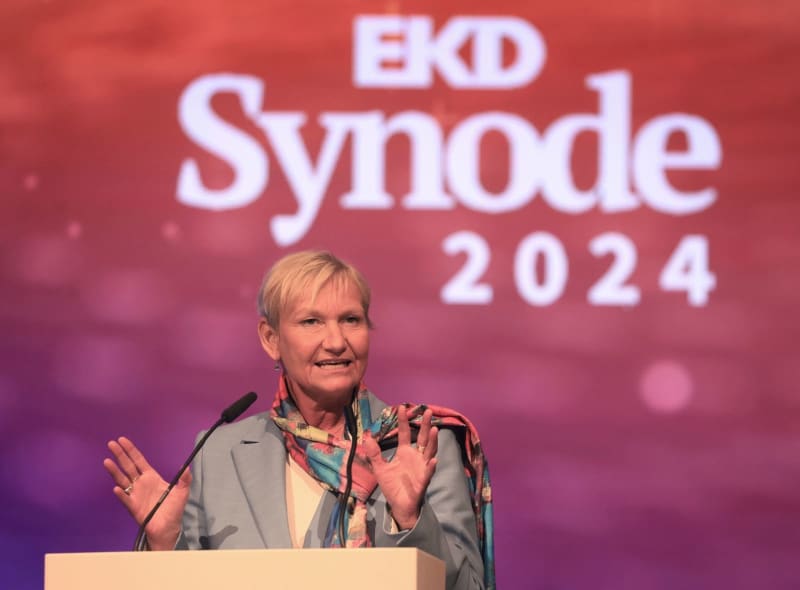In a recent address, Kirsten Fehrs, the council chairwoman of the Protestant Church in Germany (EKD), urged the nation to reconsider its perception of refugees, advocating against viewing them as a generalized threat. Speaking at the EKD’s annual synod in Würzburg, Fehrs criticized the current political discourse surrounding asylum seekers, labeling it as “dangerous” due to its focus on deterrence and deportation strategies. She emphasized the need to recognize the humanity of refugees, stating, “It’s about people, not numbers.” Her comments come at a time of global uncertainty, reflecting on the implications of recent U.S. elections and political instabilities within Germany itself.
Fehrs highlighted the fragility of current global circumstances that engender feelings of insecurity and fear among populations. She expressed hope that Germany would re-establish its political stability, as she believes democracy relies on robust institutions. The EKD’s synod this year is centered around the themes of flight, migration, and human rights, drawing attention to critical issues of asylum and refugee treatment. This framework of discussion signals the church’s commitment to advocating for humane policies regarding migrants, contrasting with the prevalent political narratives focused on limiting inflows.
During the synod, Josef Schuster, president of the Central Council of Jews in Germany, echoed Fehrs’ sentiments, underscoring the fundamental right to asylum for individuals facing political persecution. Such statements from influential figures within Germany’s religious and cultural sectors serve to remind the public and policymakers alike about the sacredness of human dignity and rights, irrespective of one’s origins. The president of the synod, Anna-Nicole Heinrich, reinforced this notion by declaring that “Every person has the same dignity,” and criticized the often hostile discussions surrounding migrant deportation policies. These perspectives serve not just to advocate for the vulnerable, but also to defend principles of compassion and human rights.
The discussions around refugees and migrants at the synod are further intensified by previous controversies within the church, particularly regarding the handling of sexual misconduct cases. Last year, Fehrs’ predecessor faced scrutiny for alleged negligence in addressing sexual offenses committed by a church employee. This scandal highlights ongoing challenges within institutions to maintain ethical and moral integrity while also providing support for victims of abuse. The synod has made a significant effort to prioritize the discussion of sexual violence within its agenda, recognizing the critical need for preventive measures and responses to such acts.
As the synod continues, the election of a new council chairwoman is anticipated, as Fehrs finishes her term leading EKD until 2027. Her appointment underscores the ongoing commitment of the EKD to focus on pressing social issues like migration and human rights, ensuring that the church remains a voice for marginalized groups in society. The EKD, representing a significant number of Protestants across Germany, plays a crucial role as an advocating entity for social justice, aiming to bridge the divide between political rhetoric and humanitarian action.
In summary, the ongoing discourse at the EKD’s synod reflects a deep concern for the treatment of refugees and asylum seekers in Germany. With prominent figures advocating for recognition of the inherent dignity of all individuals, the synod seeks to navigate the intersection of faith, social justice, and human rights amidst a backdrop of political uncertainty. The call for compassion over fear, and the commitment to uphold the rights of the vulnerable, remains a critical theme as the church continues to function as a moral compass within society.

